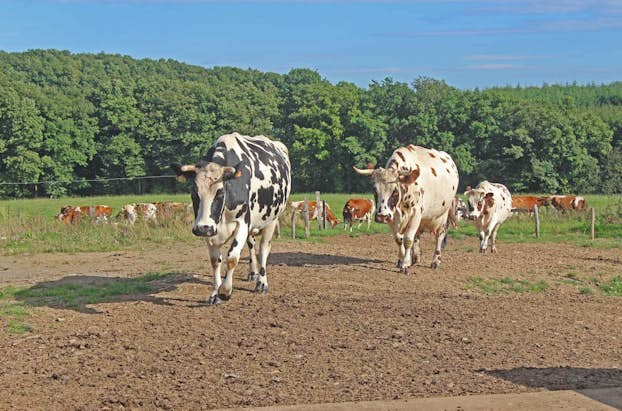- News
First digital OIKOPOLIS am Dialog
Vegan Ernährung a Bio-Landwirtschaft – Widdersproch oder Ergänzung
The first online version of the event series OIKOPOLIS am Dialog took place on the 19th of March 2021. The participants discussed about the two highly topical movements: organic agriculture and veganism.
Both parties campaign for the protection of the nature, the environment and animal rights, but they differ on the topic of livestock farming. To be precise, the goal was to find an answer to the question, whether both movements are compatible or contradicting each other. The following study captures this issue very well.
According to a study conducted by the research institute for organic agriculture (FiBL), the global food production in 2050 with 9 billion people needs to change drastically, if the world population wants to eat solely organic food. In this case, farmers could only keep a third of the chicken and 10% of the pig livestock, but would have to keep more ruminants (not in barns).
To start of the event, our guest Camille Müller from VegInfo gave an introduction on the vegan movement in Luxembourg, followed by an overview on organic agriculture by Änder Schanck. After that, Patrick Kolbusch addressed a number of questions, which pointed out the differences, interconnections and conflict potentials between both movements on a political and social note.
The vegan expert was conscious that a vegan world without livestock farming would be unrealistic. According to Änder Schanck, 70% of utilised agricultural area (from a global and long-term perspective) are pastureland. It is known that only ruminants are able to transform these grasslands into food appropriate for humans. Furthermore, grazers provide the necessary fertiliser for organic agriculture thanks to their manure and thus maintain the complex system of healthy soils in line with the farm organism. Each member of our value chain picks up this principle of the natural cycle in organic agriculture and puts it into practice in the form of a circular economy.
Both sides consider the global industrialised meat production as the real problem - organic agriculture has no similarities from this farming method and certainly distances itself from it. This type of farming has nothing to do with the original sense of agriculture. It requires vaste agricultural lands to grow fodder and the livestock is often kept under very poor living conditions. Moreover, vegan meat substitutes, which are partly produced by MNE’s, are not the main food source of vegans, claims Camille Müller. They usually serve as a bridge for people who want to decrease their meat consumption for ethical reasons.
All in all, both movements are a contemporary answer to the world of today. Both experts agree on the fact that there exist multiple interfaces for a possible cooperation and that both movements don not necessarily contradict themselves. Livestock farming, which follows the rules of organic agriculture, can satisfy the expectations and requirements of vegans regarding animal welfare, climate protection and a healthy and sustainable food culture. It remains of utmost importance, that (especially young) people act consistently. Hence, a global movement could emerge which actively supports organic agriculture as well as fulfils the demands of vegan activists.

